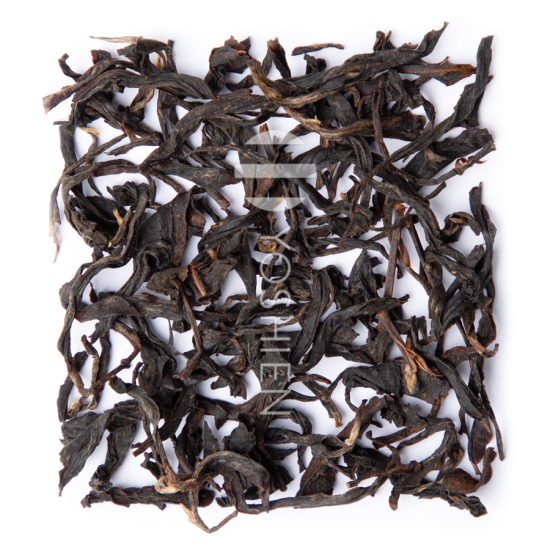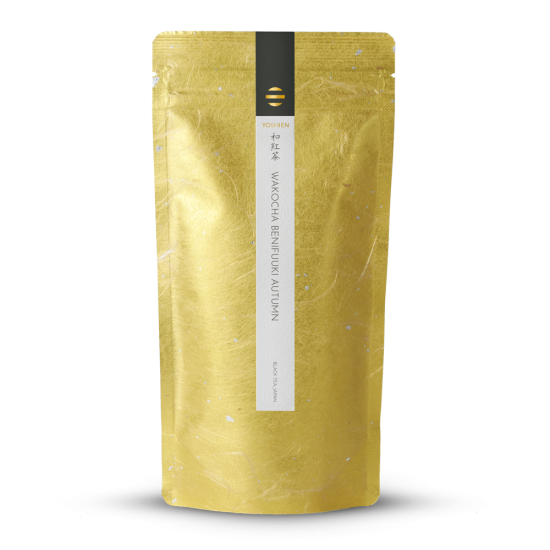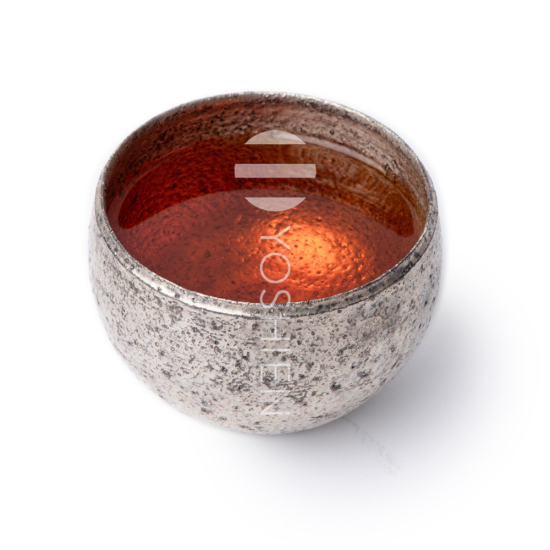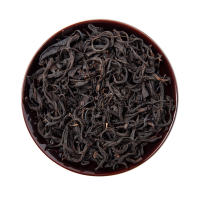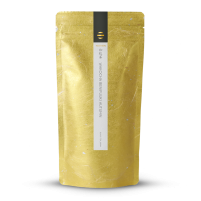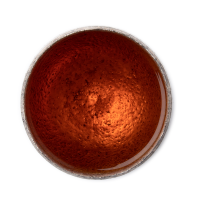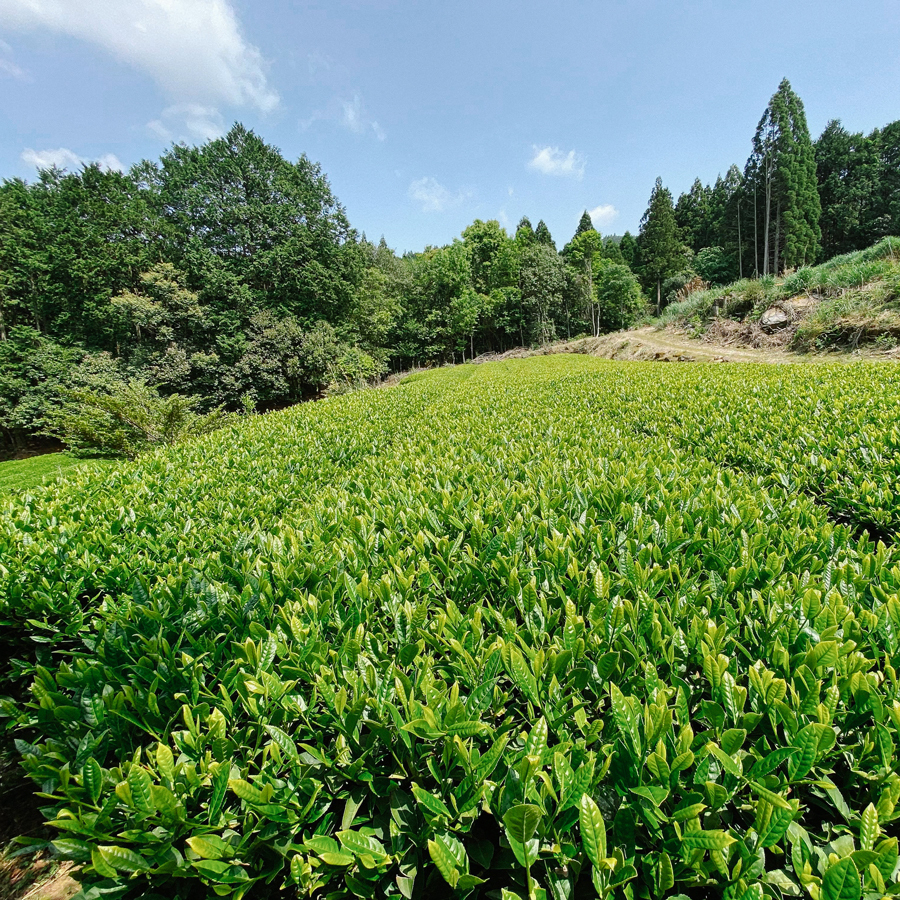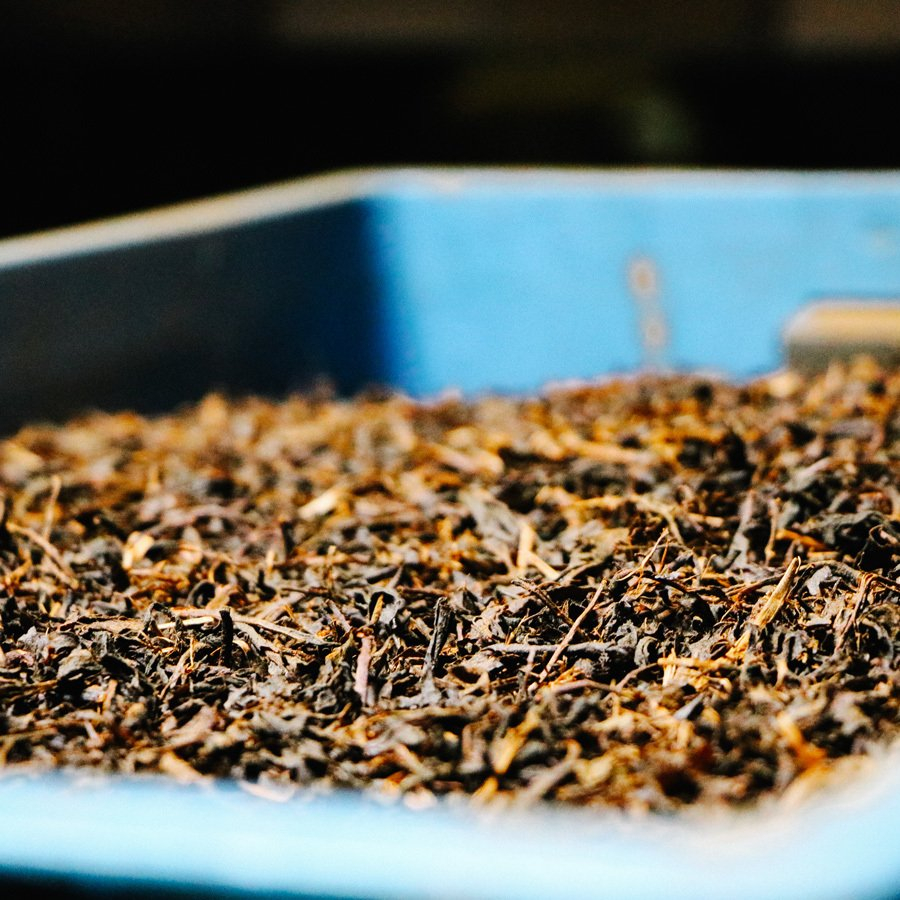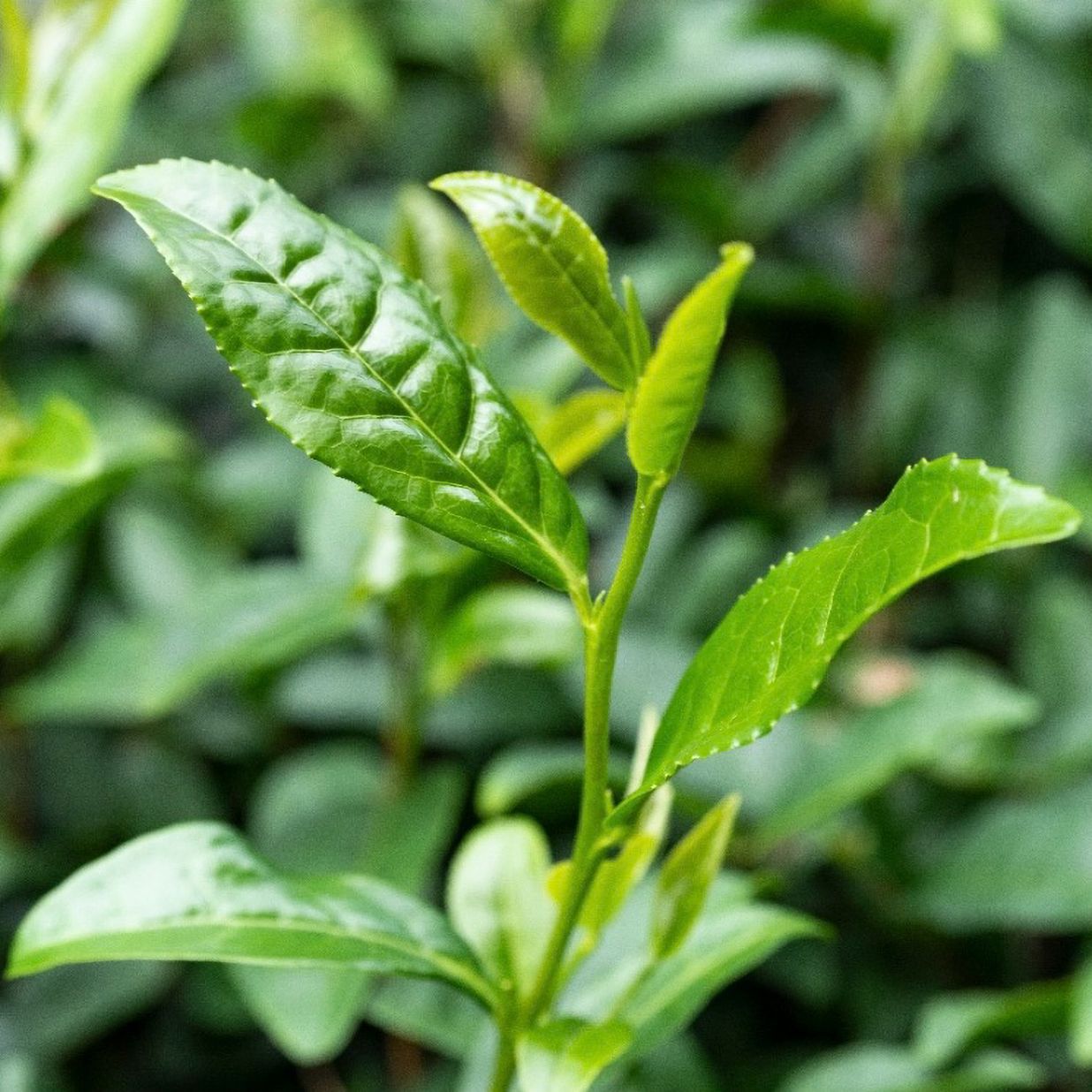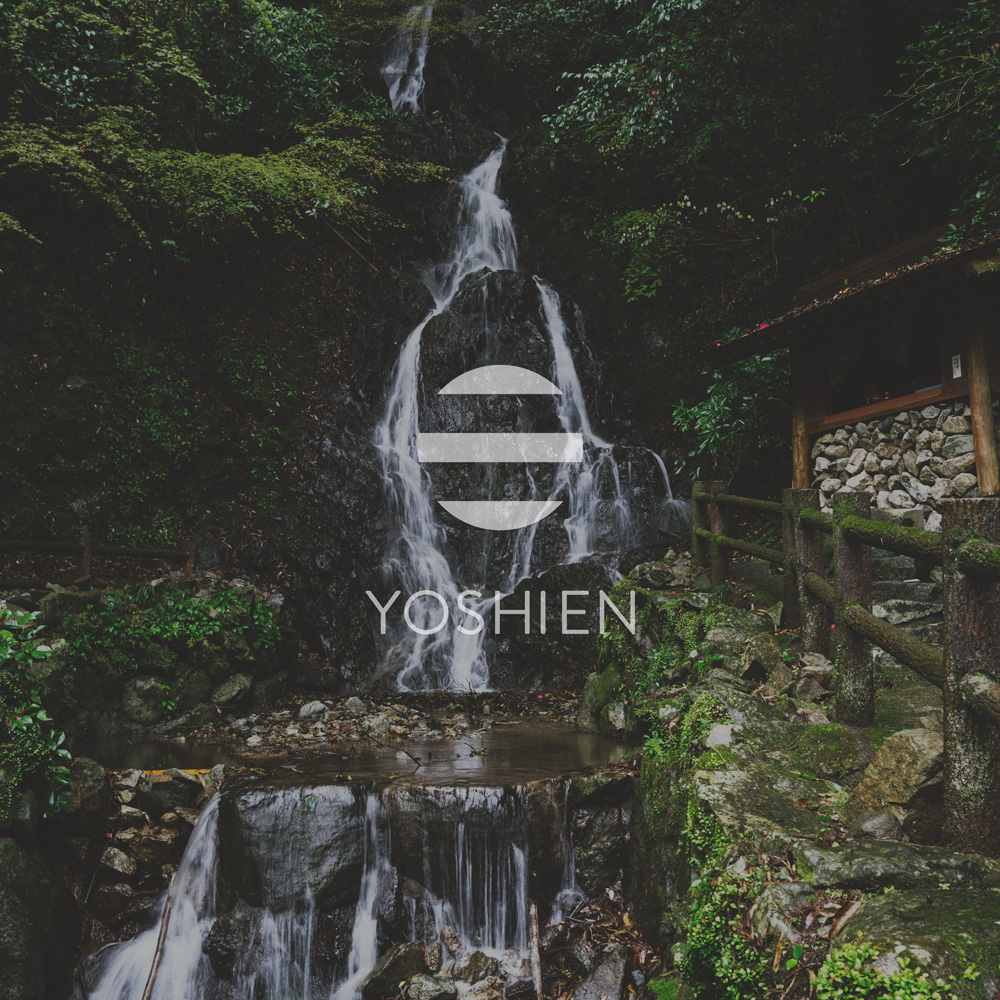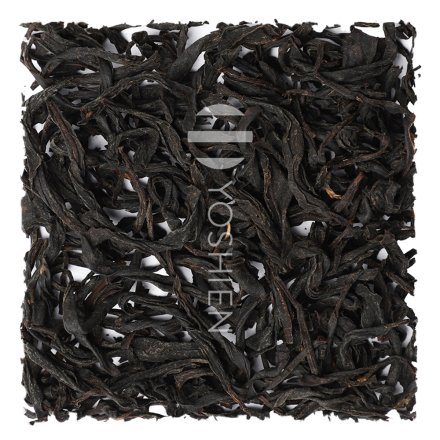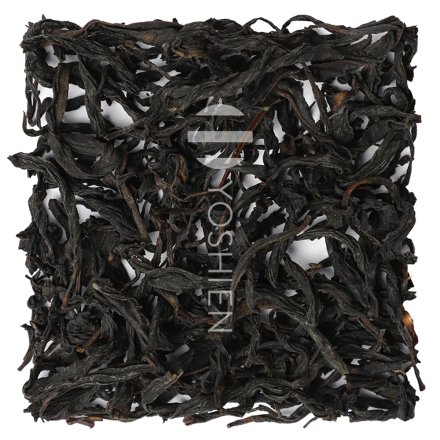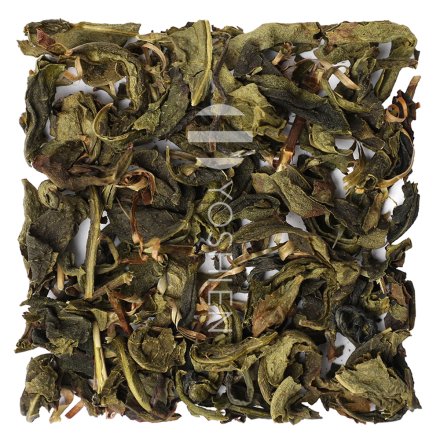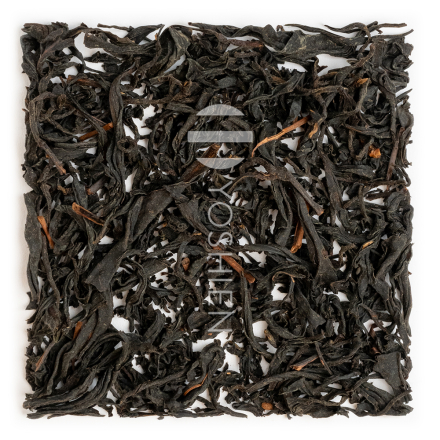Special features in location, cultivation and processing
Despite its inland location, the tea farm lies only a few kilometres from the Yatsushiro Sea. Because of this proximity, the region is often cloaked in mist, which acts as natural shading and contributes to smooth tea leaves with a soft, mellow flavour. The surrounding mountain forests of southern Kumamoto are interwoven with numerous rivers, featuring idyllic waterfalls and natural rock caves. This abundance of fresh water is vital for tea cultivation and is available here in ample supply. Because of the mountainous terrain of the plantations, only small, hand-operated machines can be used for harvesting, especially since the tea fields are considerably smaller than those of conventional lowland farms. The production of the tea requires continuous monitoring of the harvested leaves by Mr Kajihara, who must closely observe factors such as humidity, temperature, and weather throughout the stages of withering, oxidation, and drying. Because of his many years of experience and passion for tea cultivation, he has gradually gained widespread recognition through awards at both regional and national competitions. His Wakocha teas are also highly regarded by connoisseurs abroad. Not only do his teas stand out for their exceptional taste, but they also differ significantly from conventionally grown teas in terms of cultivation: only organic fertilisers are used, without any chemical pesticides.
A distinctive feature of this tea is its long needle-shaped leaves, a result of his adherence to traditional processing techniques which he studied during his training in Taiwan. Unlike common practice, the leaves are not cut, resulting in this Wakocha’s elegant, elongated form. The Benifuuki cultivar is a cross between Assamica and Sinensis varieties and was officially registered in Japan in 1993. This relatively new cultivar is used for both green tea, known for its methylated catechins, and oxidised teas. Black tea from this cultivar is characterised by a mildness and sweetness unique to Wakocha.
Single Origin
This tea comes 100% from the above-mentioned tea field in Ashikita.





